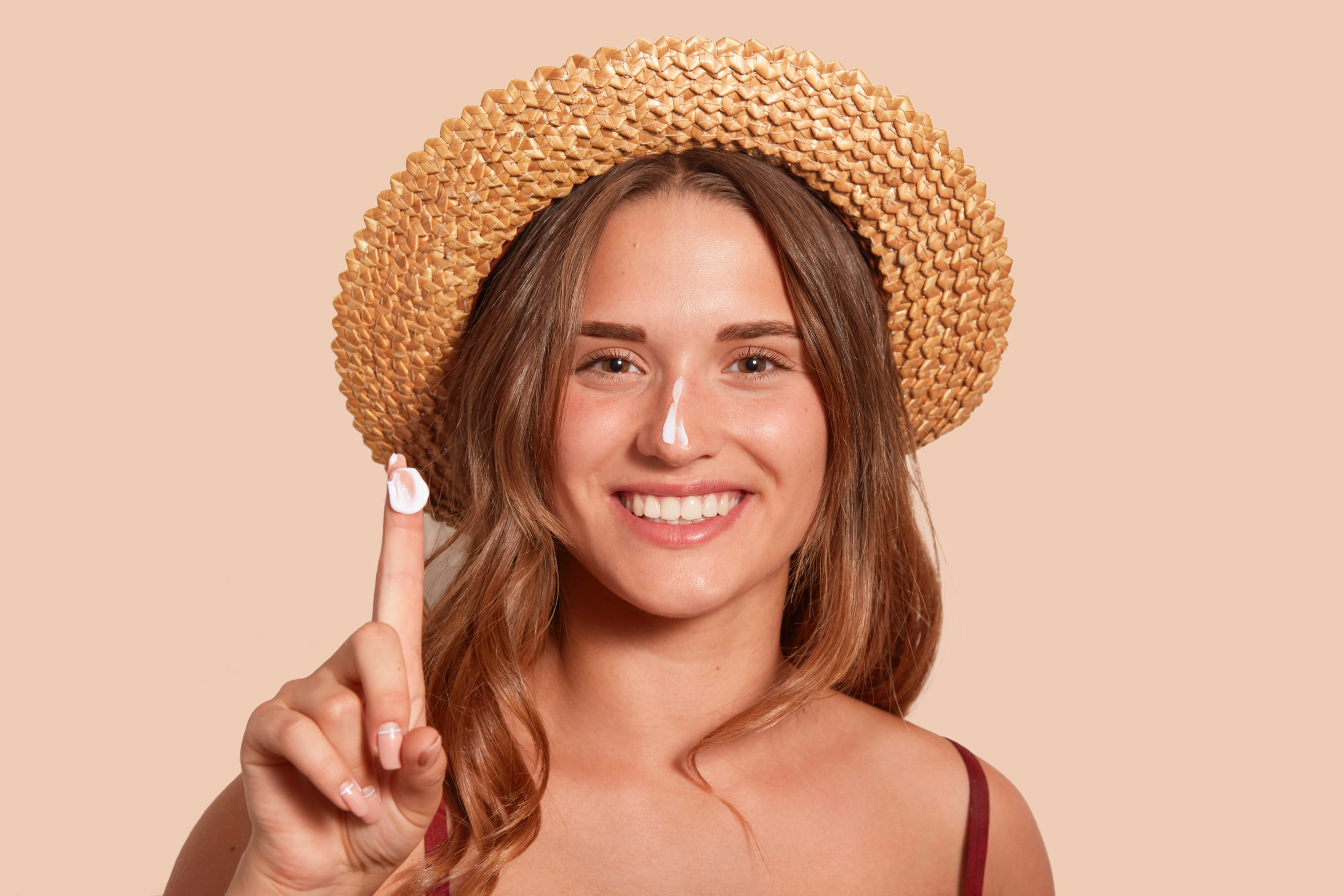

If you are looking for healthy, non-irritating sunscreens, there is no better option than tinted mineral sunscreens from LASPA. These formulas are made to protect the skin by using plant-based alternatives as opposed to chemicals that can cause irritation, worsening of a present skin condition, or even harsh toxins leaching into the body.
To counter all of these possibilities when it comes to SPF, LASPA believes in providing premium sunscreens made with quality ingredients that are safe for all age groups, skin types, and sensitivities without compromising on effective ultraviolet protection. By using natural formulas, hypoallergenic ingredients, and zinc oxide sunscreens, the brand has made SPF products that are healthy, sustainable, and environmentally friendly.
Many of us are looking forward to enjoying the summer weather, and with that comes the need for daily suncare and preparing to protect ourselves from ultraviolet rays. Tinted mineral sunscreens, mineral-based face sunscreens, and broad-spectrum SPF are rising stars in SPF protection as safer alternatives to the synthetic ingredients often found in chemical-based sun care formulations.
What is Mineral-Based sunscreen?
We all have a brand-name formula for SPF that we have used and loved. Some of us may even be using the sunscreen we had as children. But could it be time to re-evaluate what we deem as the best sunscreen for face, neck, and body use?
Mineral-based sunscreens, or ‘physical sunscreens’, are widely available and are classed as the healthier, cleaner option for SPF. These SPF products rely on natural minerals and formulas making them some of the best natural, safe sunscreens available all over the world.
One thing you should know about mineral-based SPF is best said by the FDA: “The two most common ingredients in mineral sunscreens, titanium dioxide, and zinc oxide, are currently the only sunscreen ingredients generally recognized as safe and effective by the FDA.”
With this knowledge, those chemical-based products we love may ultimately be considered harmful rather than helpful in the long run. Before we get into how these natural sunscreens work, their benefits, and some products to consider, there are a few other things to consider.
Most mineral-based options for SPF are versatile, safe, and effective, one question that many people ask is: “Does sunscreen expire?”
The answer to this question is best answered by Allure: “Mineral sunscreens — those with zinc oxide or titanium dioxide on the label — do still degrade. Even if the active SPF ingredient is still technically good, changes in the formula over time can make it both ineffective and problematic for skin.”
So, how long does it take for these products to expire? LASPA products all come with an indicated expiry date, and any products that have met or gone over that date are not guaranteed to offer the sun protection that is claimed on the label, and some ingredients in the formulation may change due to their natural origin. It is always recommended to check all expiration dates on products before applying them to the skin.
What is the difference between mineral-based and chemical-based SPF?
Unlike chemical-based sunscreens, mineral-based lotions, and mineral sunscreens, the best mineral sunscreen for face and body are often plant-based, vegan, and therefore safe to use on all skin types and are often more compatible with variable skin types upon application.
Though a lot of the chemical sunscreens we know and love do guarantee SPF protection, come with a pleasing texture, and have elegant scents, many of these products may have harmful chemicals lurking within. So let’s get into the mineral vs chemical sunscreen debate.
As stated by the FDA, “the agency is now asking the sunscreen industry to provide additional safety information on 12 common chemical sunscreen ingredients, including oxybenzone, avobenzone, homosalate, octinoxate, octisalate, and octocrylene. “This request for additional data does not mean that the FDA has concluded that these 12 ingredients are unsafe,” says Theresa Michele, director of the division of nonprescription drug products at the FDA.”
Since the FDA claimed that chemical-based sunscreens often contain oxybenzone, cinoxate, and even homosalate, are not necessarily considered safe for use until further investigation is completed, there is already a good reason to switch to mineral-based options.
On the side of mineral-based products however, tinted mineral sunscreens, suntan lotions, and other SPF products rely on zinc oxide and titanium dioxide, which are recognized by the FDA as a much safer, natural alternative for UV protection. Plus, these ingredients are safer choices if you suffer from skin irritations or skin issues. But more on that later.
The other difference between the two sunscreen types is the ease of application and how the products work. While chemical-based sunscreens come in a lotion-like form, take time to work, and penetrate the skin’s layers; mineral-based SPF sits on the top layer of skin and works immediately upon application. Plus, this type of natural sunscreen can be rinsed off with water easily (depending on whether it is a waterproof formula of course).


Why should you use Mineral Sunscreen?
Mineral-based, natural sunscreen is generally better for SPF protection for a number of reasons. But one of the key reasons it is because children, pregnant women, and people with sensitive and naturally irritated skin can confidently use it.
Many mineral-based SPF formulas focus on providing plant-based, hypoallergenic, and natural protection, these formulations would be a safer choice for skin conditions like eczema, rosacea, and dry skin. For those that are dealing with sensitive skin and want to have UV protection and skin rejuvenation, LASPA’S Glycolic Overnight Face Peel can also help to reverse any sun damage and smooth the complexion. For maximum results, LASPA recommends using its Glycolic Acid Peel Overnight Treatment Kit for 5-7 days in a row, followed by applying LASPA’s SPF30 Moisturizing Mineral Sunscreen daily, as skin will be more sensitive to UV rays.
All of that is great to know when choosing the best mineral sunscreen for you. But, using mineral-based SPF also has the ability to provide full-spectrum protection from the sun’s ultraviolet radiation, that is both UVA and UVB rays, and this broad spectrum protection occurs regardless of the SPF value claim on the label .
Need more? Reader’s Digest also had a few things to say about using mineral-based alternatives when it comes to SPF: “mineral sunscreens with both zinc oxide and titanium dioxide protect against UVA which is the wavelength that penetrates clouds and glass and causes significant photo-aging in the form of wrinkles and sunspots.” Who knew there was so much protection in one simple product?”
What’s more, the mineral sunscreens provided by LASPA are:
- Clinically tested and approved by Health Canada
- Vegan
- Cruelty-free
- 100% naturally sourced
- Hypoallergenic
- Presented in recycleable packaging and containers
Compared to the harmful effects of chemical-based sunscreen, all of these attributes set SPF protection expectations at a high bar.
What are some Mineral-Based Products?
Many mineral-based, natural sunscreens come in SPF 20, SPF 30, and SPF 50 strengths for personalization and preference.
As noted in many LASPA reviews, the LASPA Moisturizing Mineral Sunscreen SPF 30 and the LASPA Daily Sun Protection Mineral Sunscreen SPF 20 are loved for their thoughtful ingredients, versatility, non-irritating on the skin and how they can be used daily.
As one blogger on Chantal’s Corner stated in a review of the LASPA SPF50 Ultra Sunscreen Stick: “This product is new this year and OMG I LOVE IT! With an SPF of 50, I expected it to be greasy, but it’s not. I actually find it kind of mattifying. You can get a bit of a white cast if you go overboard with the application, but otherwise, it blends into the skin really well.”
If you are in the market for a natural sunscreen product for children 6 months or older, this stick is perfect for on-the-go applications to the face, hands, or even feet all while being pocket size for portability.
But, one of the most versatile and effective solutions from the brand is the LASPA SPF20 Fluid Matte Foundation, which offers a lightweight, full-coverage finish without clogging pores or causing irritation. This tinted mineral sunscreen allows for SPF20, which is roughly 93% UV coverage, and you will need to reapply the sunscreen every few hours.
Finally, this versatile tinted sunscreen’s formula offers protection from the sun while being made for all skin types and tones in a vegan, fragrance free, and cruelty-free formula. Whether running errands, having a day at the beach, or spending a day at the park, this is something you will love to have for the summer months.
Safer Alternatives to Chemical-based SPF
We all want to take care of our skin in every way that we can. Relying on mineral-based SPF products has too many pros and too few cons to avoid using for your next tinted mineral sunscreen, to provide everyday SPF protection, and protection for children 6 months or older, regardless of sensitive skin type(s).
What’s more, these mineral-based SPF options are proven to help the appearance of the skin over time by protecting from damage and wrinkles, and eliminating harsh chemicals that can leach into the body.
Next time you are looking for a plant-based, clinically proven SPF product that is a good investment for skin health, protects from sun damage, and has a lightweight feel upon application, mineral-based is definitely a safe option for your whole family. To learn more about LASPA’s collection of mineral sunscreen options to keep you protected all summer long, please sign up to receive the LASPA newsletter as well as learn about product promotions and special events happening.

